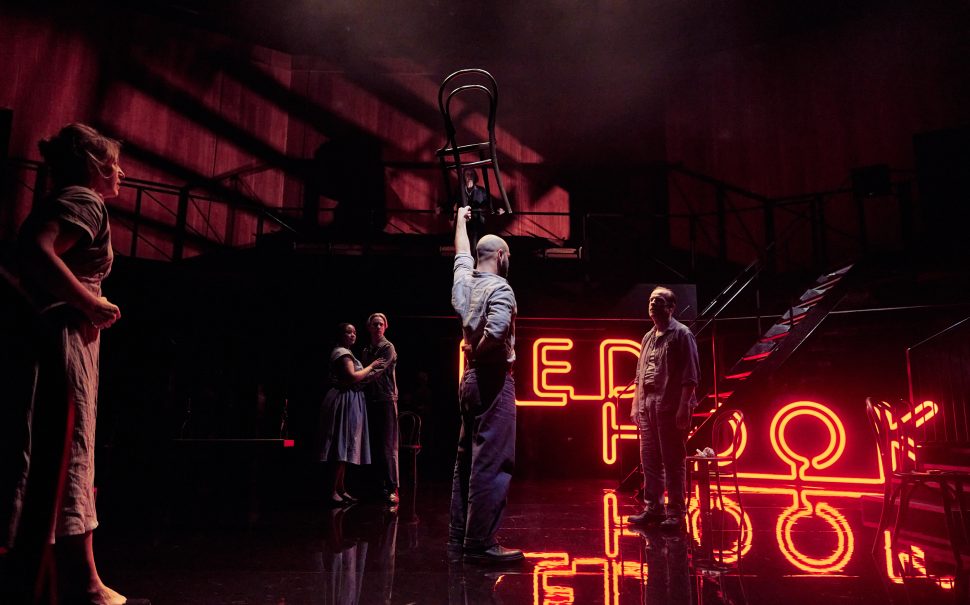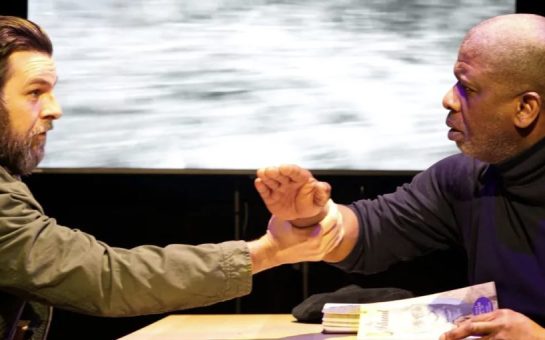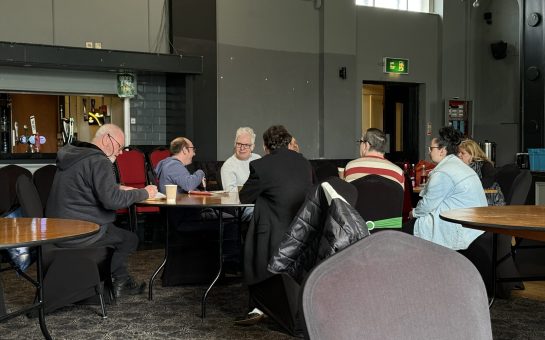Headlong director Holly Race Roughan puts a fresh, intoxicating spin on a classic play in the Bolton Octagon’s new production of Arthur Miller’s A View from the Bridge.
The story follows the working-class Italian-American Carbone family in postwar Red Hook, Brooklyn, whose life is disrupted by the arrival of mother Beatrice’s two cousins, illegal migrants in search of a better future.
As in most Miller plays, the central figure is a proud patriarch. In this case it’s Eddie Carbone (Jonathan Slinger), whose love for his niece Catherine and jealousy of her newly arrived lover, Rodolpho, propels the play towards its inevitable tragedy.
Kirsty Bushell is magnetic as the wife, Beatrice, struggling to hold her family – and Eddie – together. Rachelle Diedericks perfectly captures Catherine’s coquettish but childlike nature, and the internal battle of a young girl trying to grow up.
The play’s undisputed core is Eddie, proud, possessive, brittle and angry at the collapse of the life he has built. Slinger’s expert portrayal creates a figure as powerful as he is frustrating for the audience.
A sparse set of simple chairs and a wrought iron fire escape staircase, above a glossy, mirror-like black floor, allows the focus to be purely on the action. Glaring red neon signs illuminating ‘Red Hook’ and a smoke machine add to an eerie, gritty atmosphere.
The metal stairs, often a focal point of the action, also reminded me of West Side Story, another tale of revenge, obsession, desire and the clash between different ideas of justice.
The staging is expert. The characters circle around each other like caged animals, pacing in their claustrophobic apartment, and perch on chairs awkwardly far apart, conversing across miles of empty space.
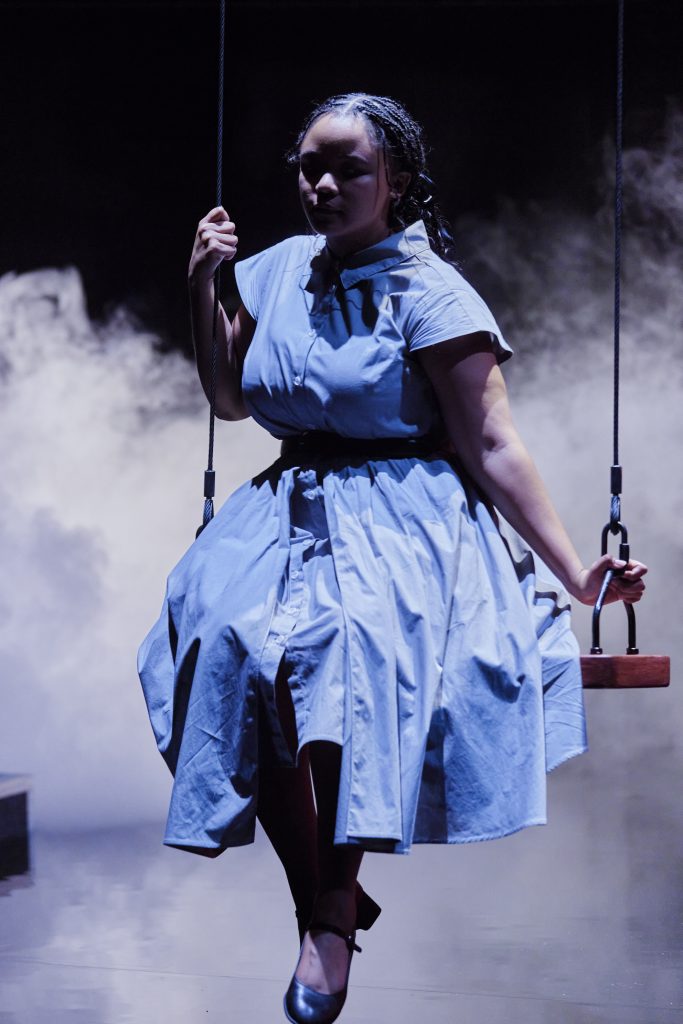
Traversing this space, and contrasting with these moments of distance, are the frequent instances of touch.
Beatrice clings to her avoidant husband; Eddie’s hands linger a fraction too long on Catherine. It all perfectly draws out the uncomfortable dynamics of this unhappy group.
The soundtrack, too, is crucial as the tension ratchets up. Crackling white noise and static sounds underline the fractious dynamics, building to an operatic, orchestral climax as the play nears its inevitable tragedy.
Observing all this is Mrs Alfieri, the lawyer-narrator, played here for the first time by a woman (Nancy Crane). The gender swap adds another layer to the play’s gender politics, but perhaps diminishes the grim reality of life for women in the 1950s, dependent on the whims of father or husband.
Crane strikes a conversational note in her narration which occasionally jars with the increasing darkness of the play’s action and dialogue, but skilfully weaves in and out of the action.
Mrs Alfieri’s hovering on the edges of the set showcases her powerlessness in the face of fate. She too finds herself unravelling, the more involved she becomes in Eddie’s life.
In another fresh take, the production toys with Eddie’s own sexuality. As a male dancer floats through moments of stillness, Eddie’s eyes follow him around the stage, further posing questions but pulling back from offering concrete answers.
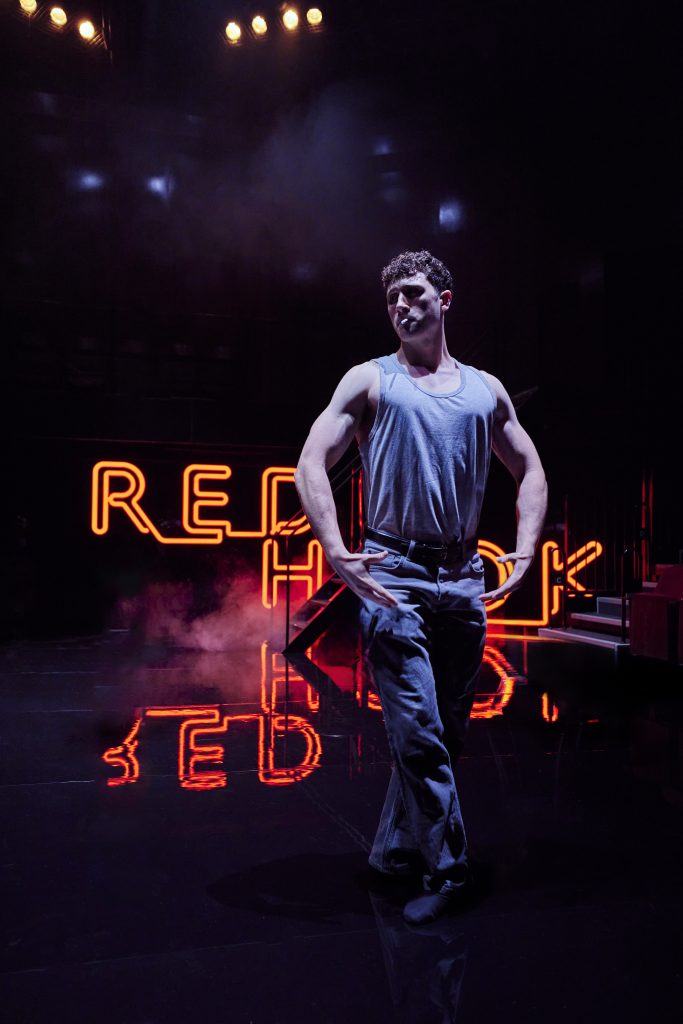
There are a few moments where the dialogue and Brooklyn accents became a little lost in the shouting of Act 2’s defining moments.
But minor details aside, this is a fantastic, slow-burning production with the characters’ humanity – flaws and all – at its heart.
The production will continue at the Octagon Theatre, Bolton until Saturday 30 September, followed by a tour until 11 November. Tickets are available here.
Images: The Other Richard
